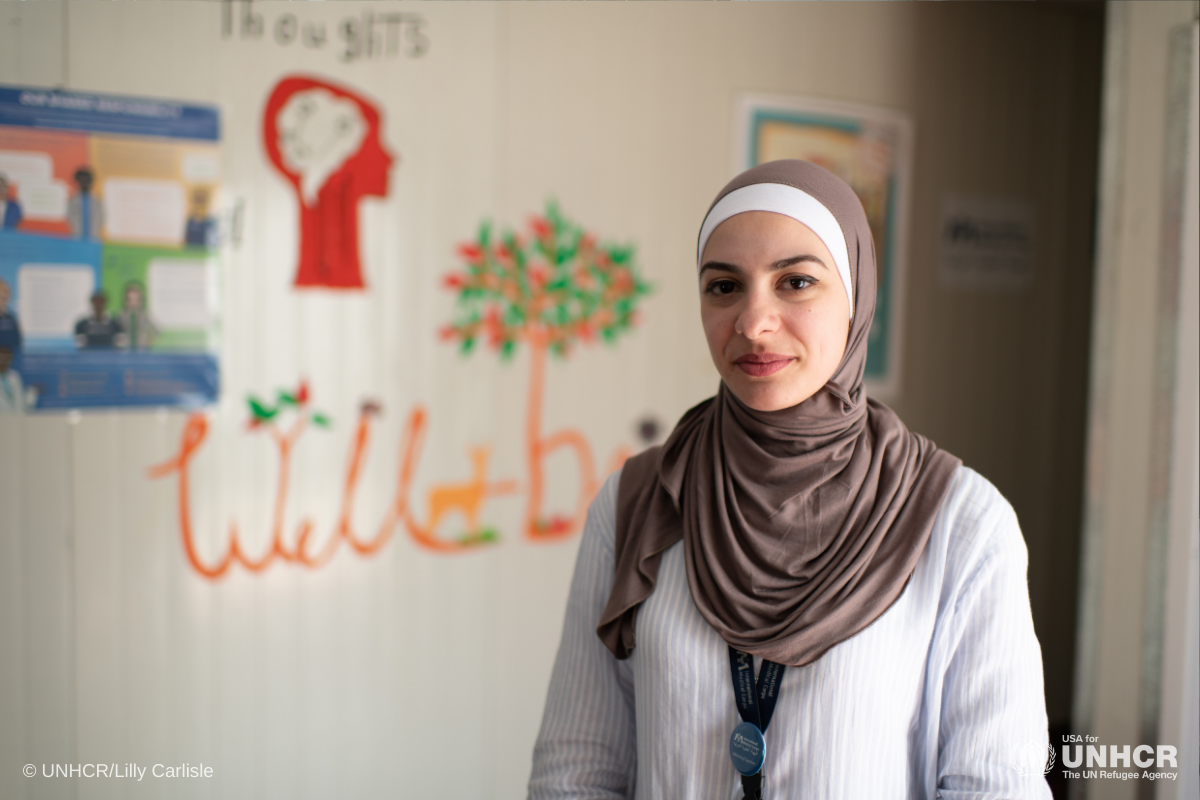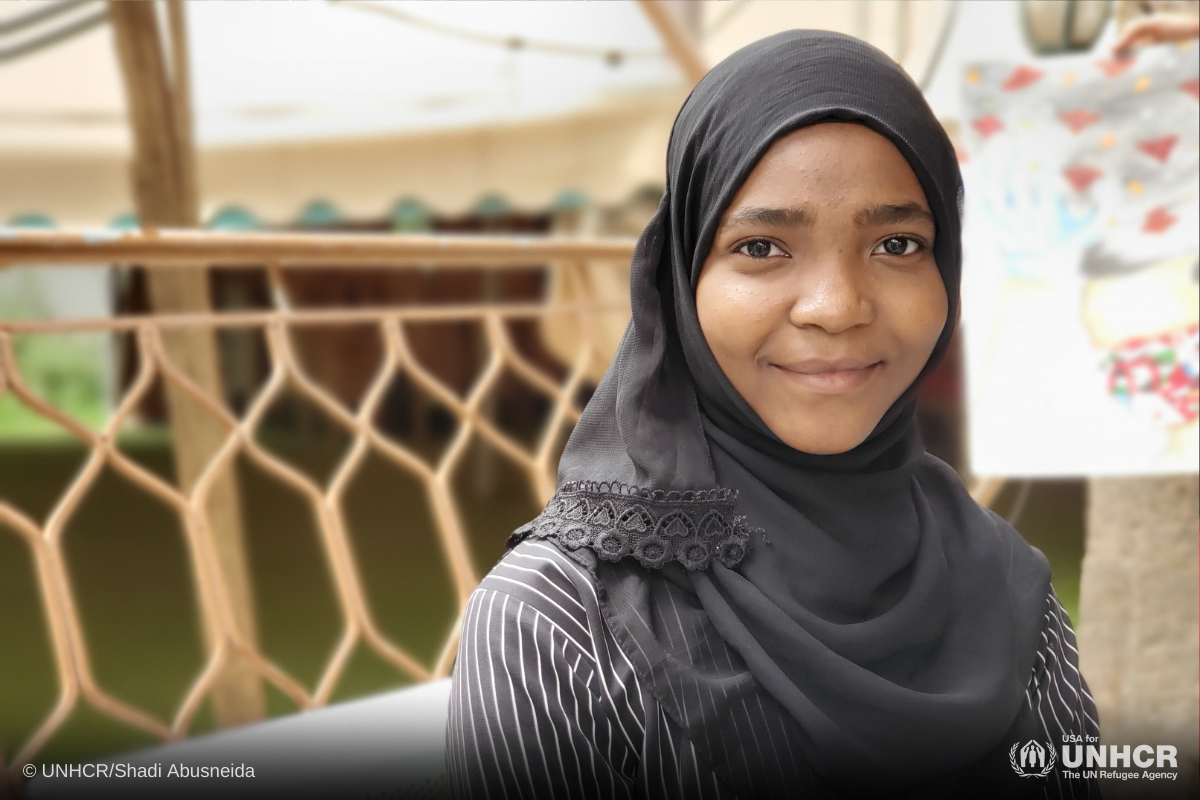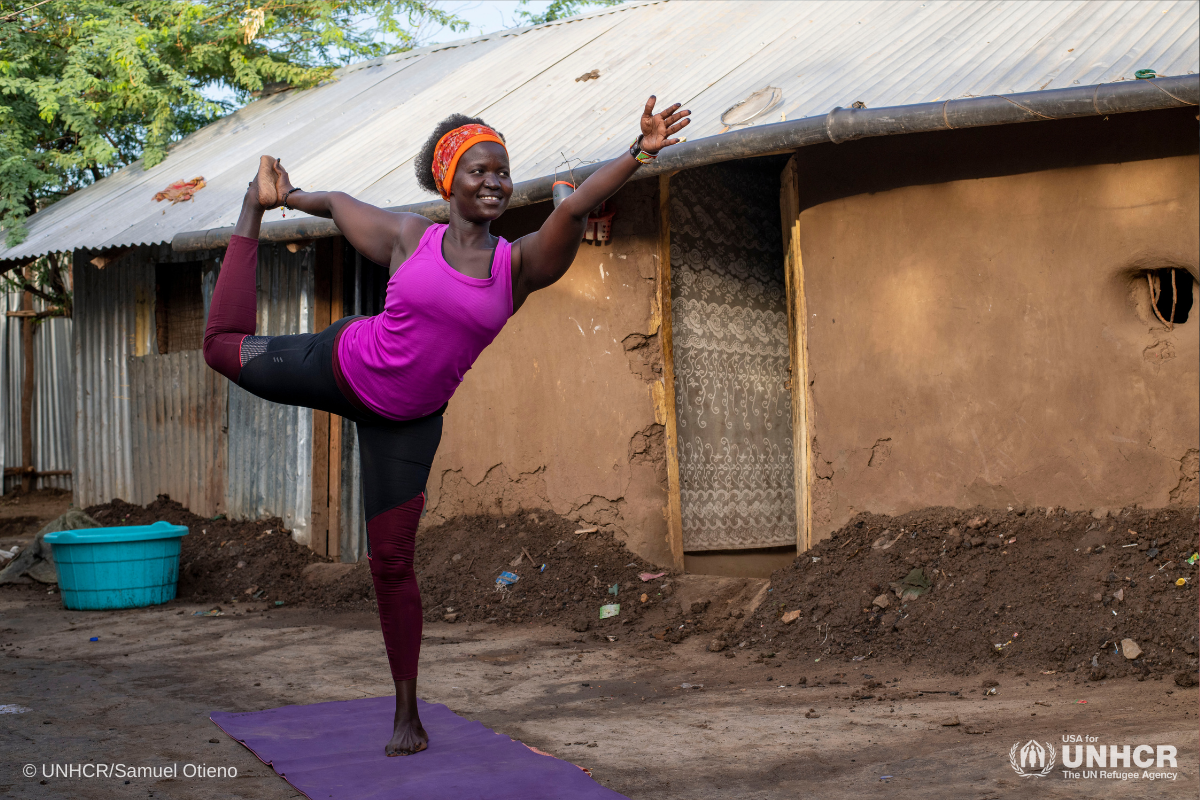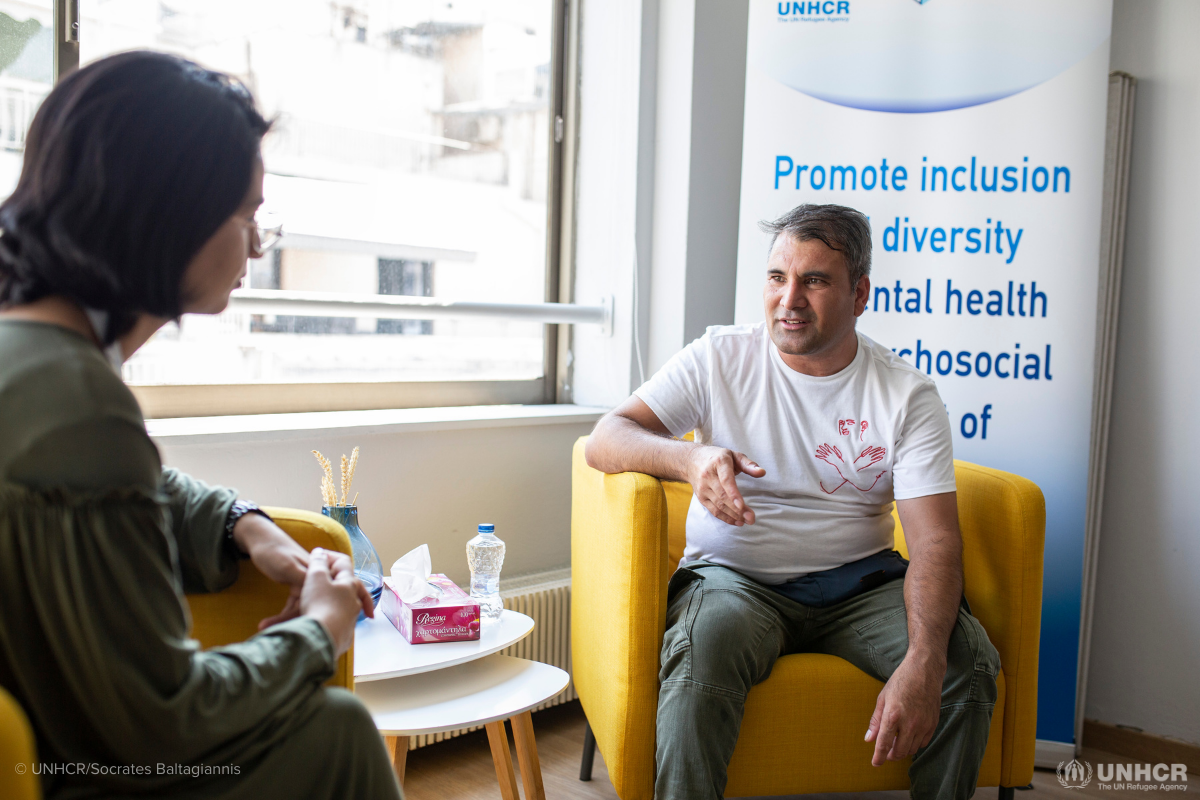Delivering mental healthcare to refugees during the pandemic
Addressing mental health and psychosocial support is an integral part of the UN Refugee Agency’s work to protect refugees and displaced people. While refugees and displaced people are remarkably resilient, access to mental healthcare is essential to help them cope with their traumatic experiences and build brighter, healthy futures.
The coronavirus pandemic has created additional challenges to delivering mental healthcare to refugees. To address these challenges, the UN Refugee Agency has supported new efforts to protect the mental health and psychosocial wellbeing of refugees, including online and recreational activities - such as fitness and art.
On World Mental Health Day, we are spotlighting some of the initiatives helping to restore and promote the wellness and mental health of refugees:
1. Psychological Support

Dr. Manar Bashara is a Jordanian psychologist at the mental health clinic in Azraq refugee camp. Before the pandemic, she used to see approximately five patients daily to provide support and counseling, but during the pandemic her health consultations have increased by 50 percent.
“Over time, mental health problems have changed from post-traumatic stress to anxiety-based issues. There is an increased amount of fear during the pandemic, but we are here to reassure people and help them cope with their worries and fears.”
At Azraq refugee camp, UNHCR works with local partners to assist refugees and help them cope with their trauma. During the pandemic, mental health services are now being provided remotely through multi-lingual telephone calls or online sessions. For those with severe and complex mental health conditions, care is being ensured through remote or direct support delivered in safe ways, including through home visits. Provisions are also made to ensure that people who need medication can continue treatment.
2. Educational Projects

“Painting to me is not colors and crayons, it is a message for people. When I feel stressed or sad, I find a pencil and draw. I put all my feelings on a piece of paper.”
Sixteen-year-old refugee Aya lives in Yemen with her parents and siblings. She says she wants to study medicine or geology and become a famous artist.
Aya participated in an online contest where UNHCR asked youth to draw how the world is battling against the COVID-19 pandemic. They submitted their work digitally to express how the coronavirus has impacted their lives. Most of the pictures reflected the pain and loss caused by conflict and displacement; yet in the drawings, there were also glimpses of hope.
Drawing plays an important role in children’s mental health. It serves as a way to cope with trauma, express feelings and deal with strong emotions. During the pandemic, UNHCR has promoted activities with children to promote mental health through learning and playing.
3. Physical Activity

Rita Brown is a refugee and yoga instructor at Kakuma refugee camp in Kenya. She teaches refugees and Kenyans alternative ways to maintain their physical and mental well-being.
She arrived to Kakuma refugee camp in 2000, when she was only seven years old. She was forced to flee conflict in Uganda after her parents were killed by rebel groups. But despite the trauma, Rita remained strong.
In 2019, she became a yoga instructor through the Africa Yoga Project and started offering classes to refugees and aid workers at the camp.
During the pandemic, Rita has turned to social media to continue her lessons - which attract hundreds of views – and to empower other refugees around the world. She believes yoga can promote self-acceptance and mental well-being among her peers.
How you can help...
On World Mental Health Day, it’s important to bring attention to the invisible damage that displacement can leave on a person. By becoming a monthly donor, you can help fund mental health services and projects to help refugees overcome their trauma as they begin rebuilding their lives.


